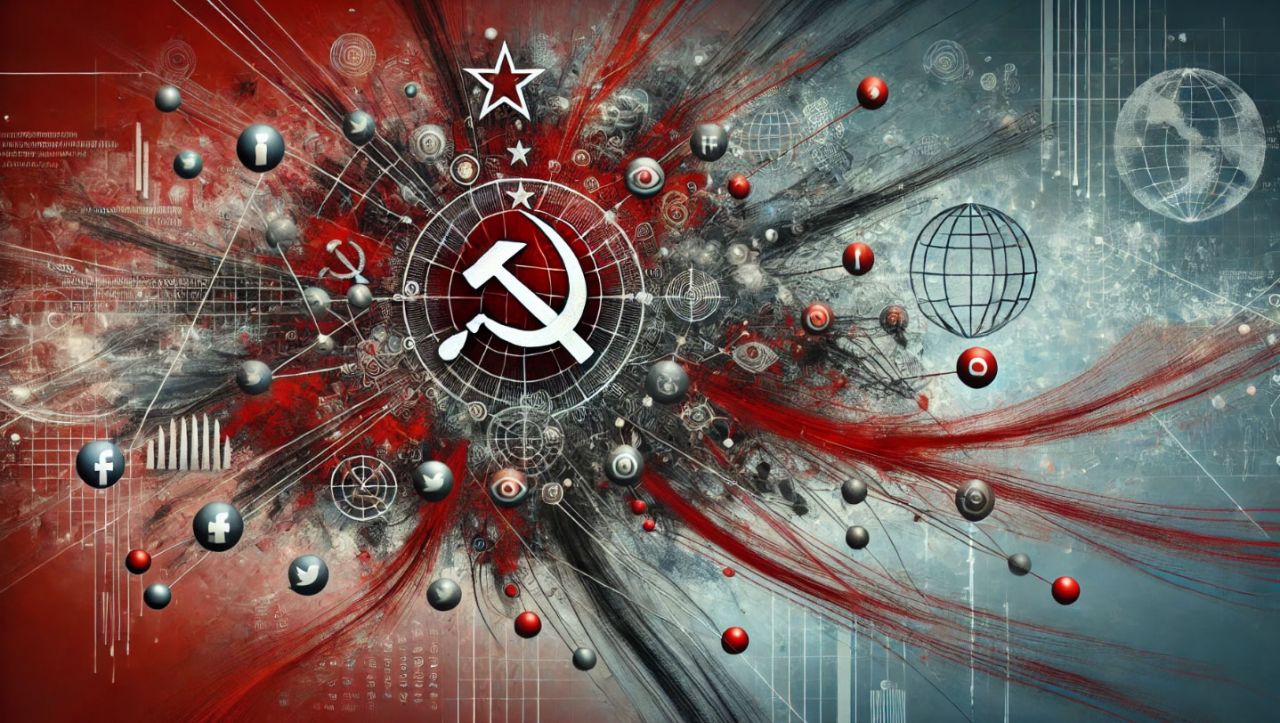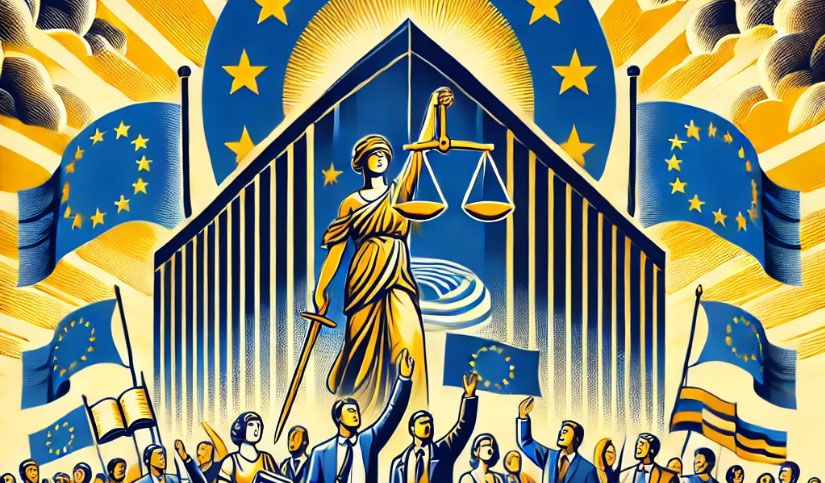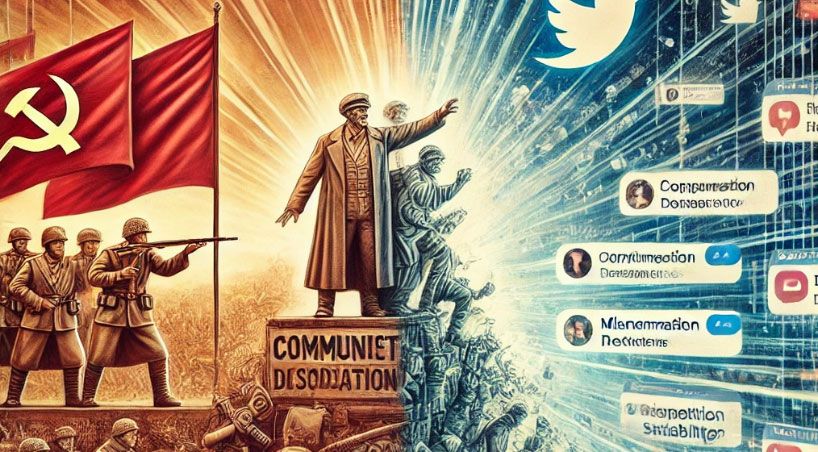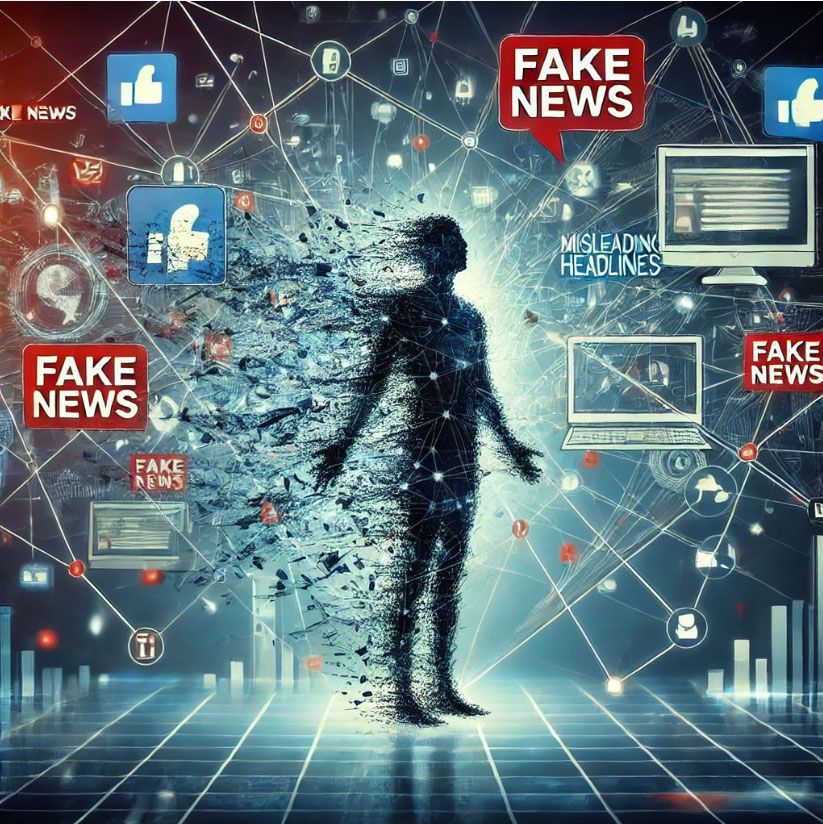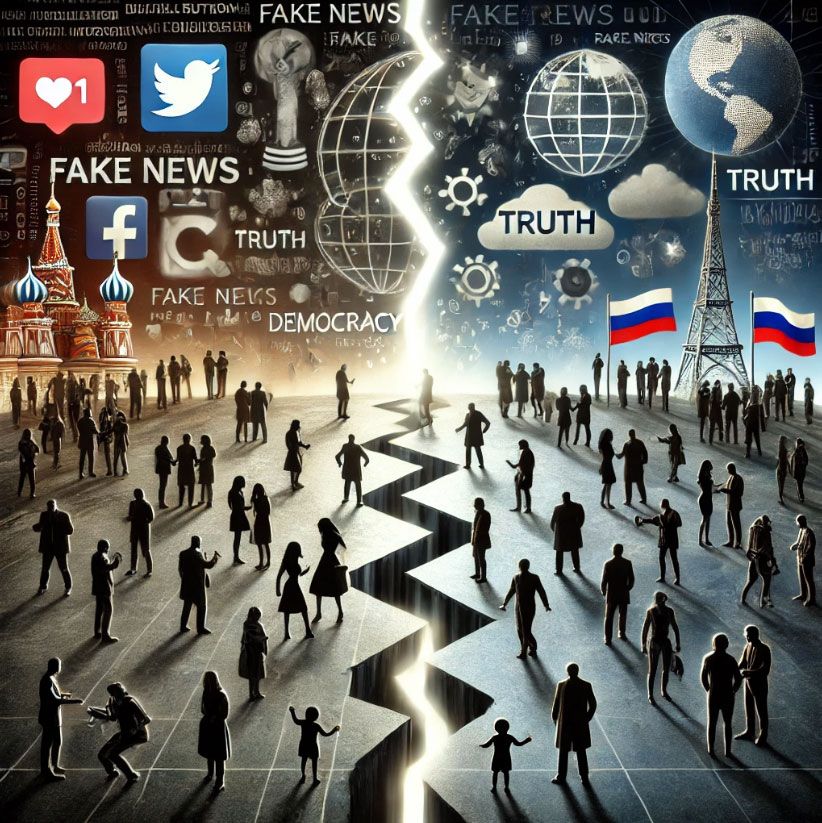Why This Matters to You
These dynamics are not abstract geopolitical concepts—they shape your life in ways that might not be immediately apparent. From the trustworthiness of the news you consume to the stability of your job and community, the ripple effects of disinformation influence everything from your economic prospects to your personal freedoms.
For instance, rising misinformation about public health policies has tangible consequences for families, workplaces, and communities.
By understanding these forces, you can better protect yourself and support systemic solutions.
The Role of Propaganda in the Collapse of the Soviet Union
The Soviet Union’s survival was predicated on its ability to control narratives, both within its borders and in the satellite states under its influence. Internally, relentless propaganda painted an image of a utopian socialist state, a narrative increasingly at odds with the lived realities of its citizens.
Outwards, the USSR sought to project itself as a global superpower, funding disinformation campaigns to undermine its adversaries and extend its influence.
But these efforts carried within them the seeds of their undoing. The internal propaganda machine created a chasm between the leadership’s portrayal of reality and the public’s perception of truth.
This erosion of trust became fatal during crises, such as the Chernobyl disaster, when state deception undermined credibility and intensified public disillusionment. Source: "Chernobyl: The History of a Nuclear Catastrophe" by Serhii Plokhy.
Externally, attempts to control narratives in satellite states often backfired, fueling resistance and exposing the Soviet Union’s limitations. By the late 1980s, the web of lies had unraveled, leaving the USSR vulnerable to collapse.
Cautionary Examples of Disinformation Campaigns
Throughout history, both Soviet and Russian disinformation campaigns have frequently resulted in unintended consequences that destabilized their own systems:
- Operation INFEKTION: A Soviet campaign in the 1980s falsely claimed that HIV/AIDS was a bioweapon created by the United States. This spread global distrust but also backfired, undermining Soviet credibility in scientific circles. Source: “The KGB and Soviet Disinformation” by Ladislav Bittman.
- Chernobyl Misinformation: Attempts to downplay the 1986 nuclear disaster eroded public trust in the Soviet government and exposed the dangers of state-controlled narratives. Source: "Chernobyl: The History of a Nuclear Catastrophe" by Serhii Plokhy.
- Interference in Ukraine: Russian disinformation during the annexation of Crimea in 2014—such as false narratives about Nazi sympathizers in Kyiv—galvanized resistance among Ukrainians and strengthened NATO’s resolve. Source: “Active Measures: The Secret History of Disinformation and Political Warfare” by Thomas Rid.
- Election Meddling in the U.S.: Russian interference in the 2016 U.S. election damaged trust in democratic processes but also led to heightened scrutiny of Russian activities and sanctions that hurt its economy. Source: "The Mueller Report".
These cautionary tales show how disinformation—initially intended to destabilize adversaries—often spirals out of control, generating blowback that weakens the very systems it was meant to strengthen.
Disinformation in the Modern Era: Parallels and Consequences
In today’s interconnected world, disinformation has become an even more potent weapon. Russia, having learned from its Soviet predecessor, has refined its use of propaganda to destabilize adversaries.
Through sophisticated campaigns that exploit social media, cyber operations, and cultural divides, Russia has injected instability into democratic systems worldwide.
Notable examples include interference in the 2016 U.S. presidential election, where Russian operatives used social media platforms to amplify divisive narratives and undermine trust in electoral processes. Source: "The Mueller Report".
How Disinformation Impacts You
Disinformation undermines public trust in essential systems, from election integrity to public health. For instance, false narratives about vaccines have led to decreased vaccination rates, exposing communities to preventable diseases.
The growing distrust fueled by these campaigns affects your safety, the credibility of your institutions, and even the ability to make informed decisions for your family.
Recognizing these threats is crucial to safeguarding your community and advocating for collective action against disinformation.
The Illusion of Control: Lessons from Systems Theory
The belief that chaos can be managed is an illusion. Injecting instability into a system—whether political, social, or economic—is akin to introducing turbulence into fluid dynamics. Once initiated, the ripple effects are impossible to predict or contain. Complex systems operate with interdependencies that amplify disruptions, often producing outcomes far removed from the instigator’s intentions.
Disinformation campaigns exemplify this principle. They may achieve specific objectives, such as swaying elections or undermining confidence in vaccines, but they also create long-term damage that rebounds on their creators.
For example, Russia’s efforts to spread anti-Western narratives have fueled extremism and misinformation globally, contributing to a climate of distrust that threatens Russian stability as well. Source: "Active Measures: The Secret History of Disinformation and Political Warfare" by Thomas Rid.
The Case for Cooperation Over Exploitation
In the face of such systemic instability, the only sustainable path forward is genuine cooperation. The global challenges humanity faces—climate change, pandemics, economic inequality—cannot be addressed by fractured and mistrustful societies. Disinformation undermines the very fabric of cooperation by pitting groups against one another, rendering collective action impossible.
For the wealthy elite, this should be a wake-up call. The pursuit of power and profit through exploitation is a short-sighted strategy. In a world destabilized by misinformation and societal breakdown, even the rich are not immune.
Economic systems depend on stable markets; political stability ensures the protection of assets; public health safeguards everyone, regardless of class.
By taking on the role of "useful helpers" to humanity, rather than exploiters, the wealthy can secure not only their own futures but also contribute to a more equitable and resilient world.
How You Can Take Action
- Stay Informed: Seek out credible sources and verify information before sharing it.
- Promote Media Literacy: Advocate for education that helps people critically evaluate information.
- Support Transparency: Push for accountability in institutions and platforms spreading disinformation.
- Foster Cooperation: Engage in community efforts that build trust and collaboration.
Building a Cooperative Future
True leadership lies in fostering solutions that benefit all. This requires a shift from the divisive tactics of disinformation to the unifying principles of trust and collaboration. Governments, corporations, and civil society must prioritize media literacy, transparency, and accountability to rebuild trust.
The rich and powerful must recognize their role not as isolated beneficiaries but as integral participants in humanity’s shared destiny.
The Soviet Union’s collapse was a cautionary tale about the dangers of systemic deception and the fragility of control. Today, the same dynamics are at play on a global scale, with disinformation threatening to unravel the progress of the human community project.
But the lessons of history and the principles of systems theory point to a clear path forward: only through genuine cooperation can humanity navigate the challenges ahead and build a future where stability and progress are within reach for all.


